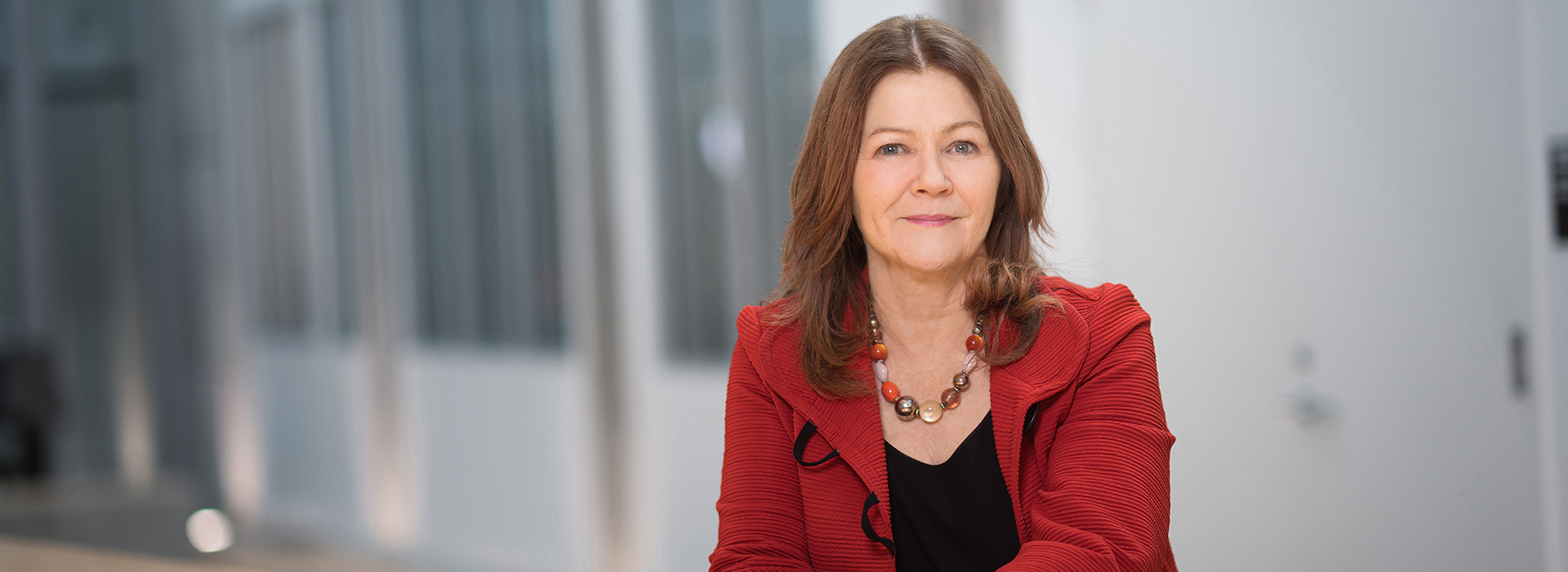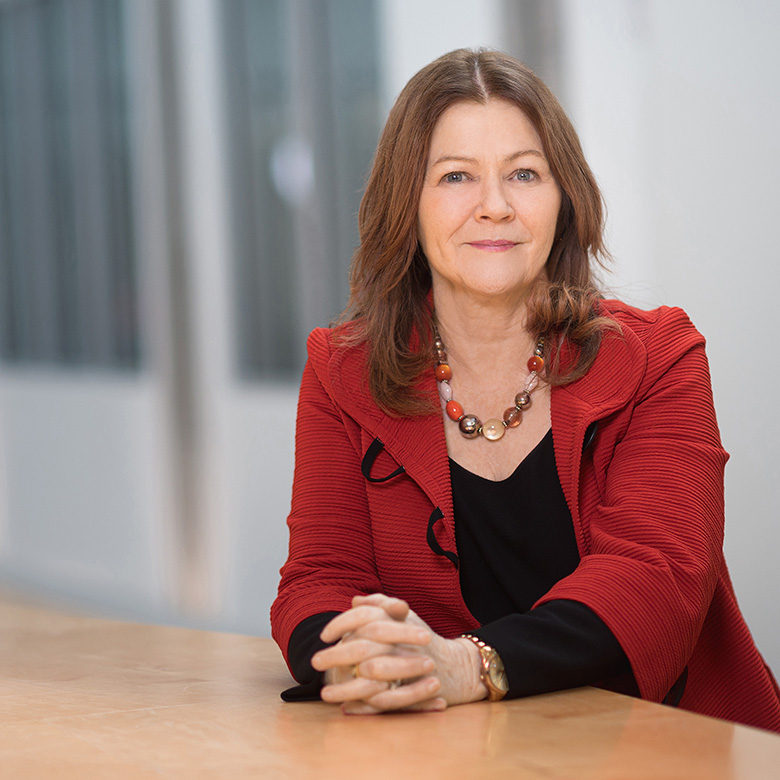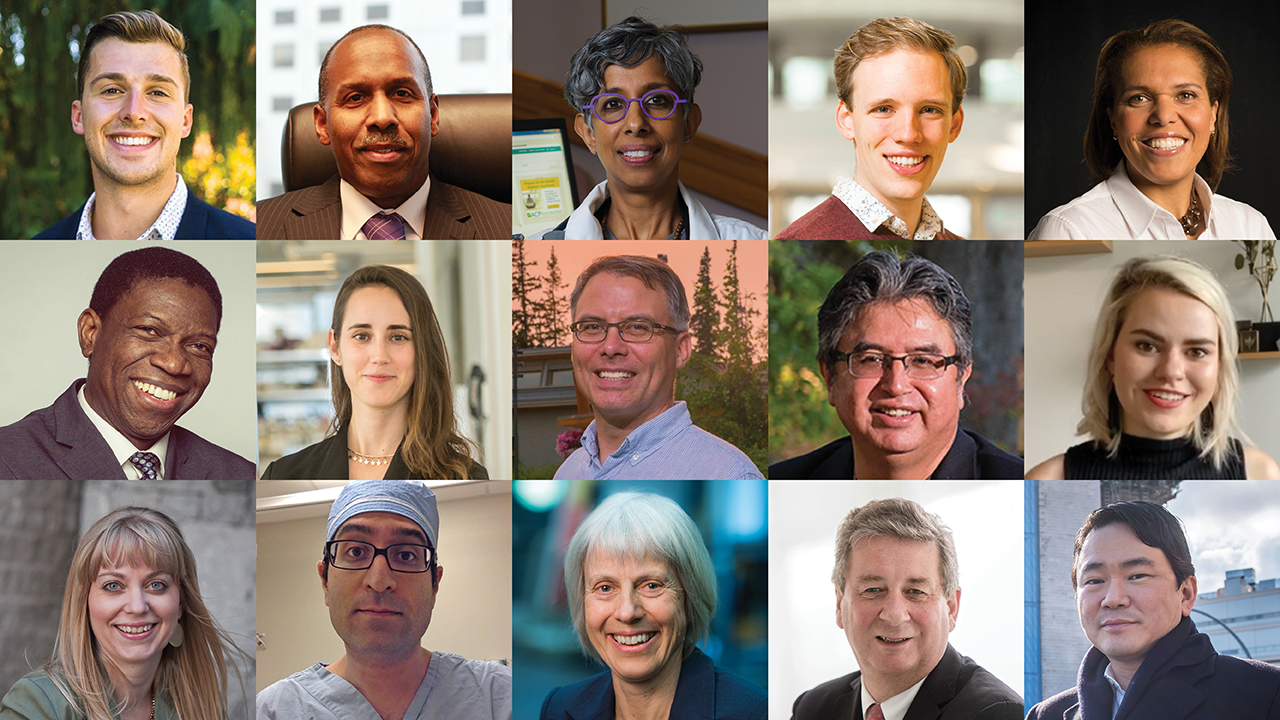Standing up for change
Roslyn Goldner is leading UBC’s Faculty of Medicine in transforming the learning and work environment by promoting respectful and professional conduct and tackling systemic discrimination, bias and mistreatment.
For UBC alumna Roslyn Goldner, the memories of growing up during the 1960s never faded. Seeing the daily struggle for civil rights left an indelible impression, igniting a life-long pursuit and desire to stand up for change.
Golder, who originally trained as a nurse, caring for patients in psychiatric and intensive care units, would later turn her attention to employment and labour law, dedicating her career to cultivating more diverse, equitable and inclusive working environments.
Last week, Golder was appointed Executive Director of UBC Faculty of Medicine’s Office of Respectful Environments, Equity, Diversity & Inclusion, where she’ll be leading the path forward, fostering respectful working and learning environments for the more than 16,000 students, faculty and staff based in communities across the province.
We sat down with Goldner to learn about her first steps as Executive Director of the Office of Respectful Environments, Equity, Diversity & Inclusion and how she’ll be engaging with the wider community to bring about long-lasting, cultural change.
In leading the Faculty of Medicine’s Office of Respectful Environments, Equity, Diversity & Inclusion (REDI), what will be the first steps you take as Executive Director? How are you looking to transform REDI?
At the Faculty, we’re focused on building a culture where all students, faculty and staff feel valued and respected, and where everyone’s voice is heard. To do this, we need to make sure that, as a community, we are aware, engaged, and curious about the lived experiences of others.
We must also hold ourselves accountable by taking a moment to reflect and examine how our own unconscious biases may be contributing to systemic discrimination.
There is an opportunity for REDI to act as a catalyst to facilitate, promote and coordinate the various initiatives that are already underway and those that are planned throughout the Faculty.
My top priority in stepping in as the Executive Director of REDI will be to support this important work, being collaborative and transparent every step of the way.
Shifting organizational culture takes time. What will be the role of the Office in bringing about change and creating working and learning environments that are free of racism and bias?
Culture doesn’t turn on a dime, but it does turn. In the last few years, the Faculty has taken a number of important steps, including introducing a new mandate for REDI, along with revamping and expanding our mistreatment reporting website to ensure everyone feels supported to come forward to report inappropriate behaviour that they experience directly or witness—and they can now do so anonymously.
In 2018, the Faculty also established the Dean’s Task Force on Respectful Environments. During the last year, and through substantive input from faculty, staff, learners, other medical schools and partner organizations, the Task Force has created a series of recommendations, providing us with a roadmap for creating and sustaining more respectful and inclusive working and learning environments. As Executive Director of the Office of Respectful Environments, Equity, Diversity & Inclusion, I will be playing a key role in leading the implementation of these recommendations.
Moving forward, we need to continue increasing engagement with all of our students, faculty and staff; maintain our humility; ensure we hold individuals accountable for their actions; and create new channels so that everyone’s voice can be heard.
How will the activities of REDI help to address anti-black racism, and more broadly support the university as a whole?
Universities are part of the cultural legacy of colonialism; they are part of the privileged dynamic that contributes to and sustains current inequities, and as members of the University community we have to accept that reality, and take responsibility and ownership.
Universities are also powerful agents of change and at UBC there is a genuine commitment to understanding and improving the experiences of all members of the community. What is currently happening in the U.S., and in Canada, and indeed around the world, is shining a spotlight on the fact that there is still much to be done in our community.
The input that we are receiving from across our Faculty and from those outside the university community about how the University must change is invaluable, and our response to that input must be open and reflective. This will allow us to use that input to shape our ongoing actions and initiatives.
Our Faculty needs to lead with humility, and with a commitment to deep listening and learning — that’s the only way we’re going to bring about thoughtful, informative and lasting change when it comes to addressing all forms of racism, including anti-black racism.
Part of your role as Executive Director will be to oversee the implementation of the recommendations put forward by the Dean’s Task Force on Respectful Environments. Tell us about some of the actions you’ll be taking?
Over the course of the implementation process, REDI will be engaging with different units and leadership across the Faculty to advance each recommendation.
REDI will also be working to advance specific recommendations around our Faculty’s professionalism policies, procedures and tools. We want to increase awareness of the UBC Statement on Respectful Environments, for example. This statement speaks to our responsibilities in building an environment in which respect, civility, diversity, opportunity and inclusion are valued.
But we know that awareness alone isn’t enough—you have to integrate these principles in everything that you do in order to change behaviour, and that involves engagement at the deepest level.
It will also involve collaboration with the wider community, and our many partners, including the health authorities, the Government of B.C. and Doctors of B.C. Our faculty and students work and learn in clinical environments across the province, so it’s critical that we are aligned with our partners with respect to how these environments can support the values of respect, diversity, inclusion and professionalism.
What role will education and training play in transforming the working and learning environments at the Faculty of Medicine in the weeks and years to come?
Education and training will be integral to this transformation, helping to raise awareness and promote a culture of respect and professionalism.
We need to train everyone in our community not to be bystanders, but to be “upstanders” – meaning that they feel empowered to speak up on behalf of themselves, and others when they see inappropriate behaviour. The days of walking by or staying silent must stop. We are all accountable for seeing the environment that we desire realized, and training will be the agent of change that helps us get there.
Why is cultural change, respect and professionalism important for you on a personal level?
I grew up in the midst of the Civil Rights Movement, the Women’s Liberation Movement, and the Anti-War Movement. In many ways, those pivotal times and the values and ideas they generated are woven into the fabric of who I am. My education both formal and informal embraced ideals of social justice, equality and equity.
When I was called to the bar, my practice focused on employment and labour law. That area of law evolved and transformed greatly over the span of a few decades, with issues related to human rights, illness and disability, anti-bullying and anti-harassment becoming more prominent in the workplace. I was able to work with clients to facilitate change and promote positive management of these issues.
The role of Executive Director, Office of Respectful Environments, Equity, Diversity & Inclusion provides me with an opportunity to more directly engage in shaping the culture in the learning and work environments of the Faculty. I fully support the Faculty’s goal to ensure participation of all members is encouraged and valued.
What drives me to do the work I’m doing now is an uncomfortable awareness of my own privilege and an awareness of how privilege can blind you and unconsciously affect your actions. While I can’t change the fact I am white, or that I am socially and economically privileged, I can listen and I can support efforts to break down barriers to the full engagement of all in our communities and in society. It’s about standing up for change.
Share this Story
Published: July 9, 2020


